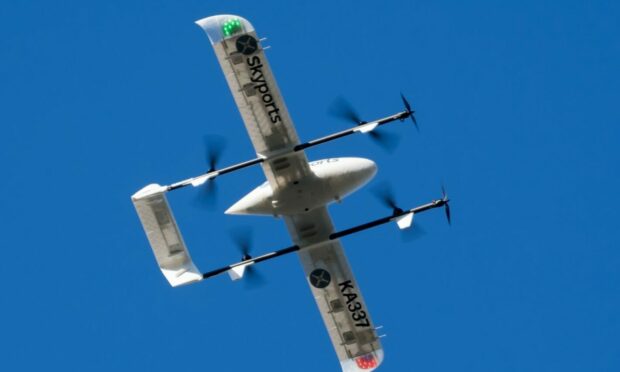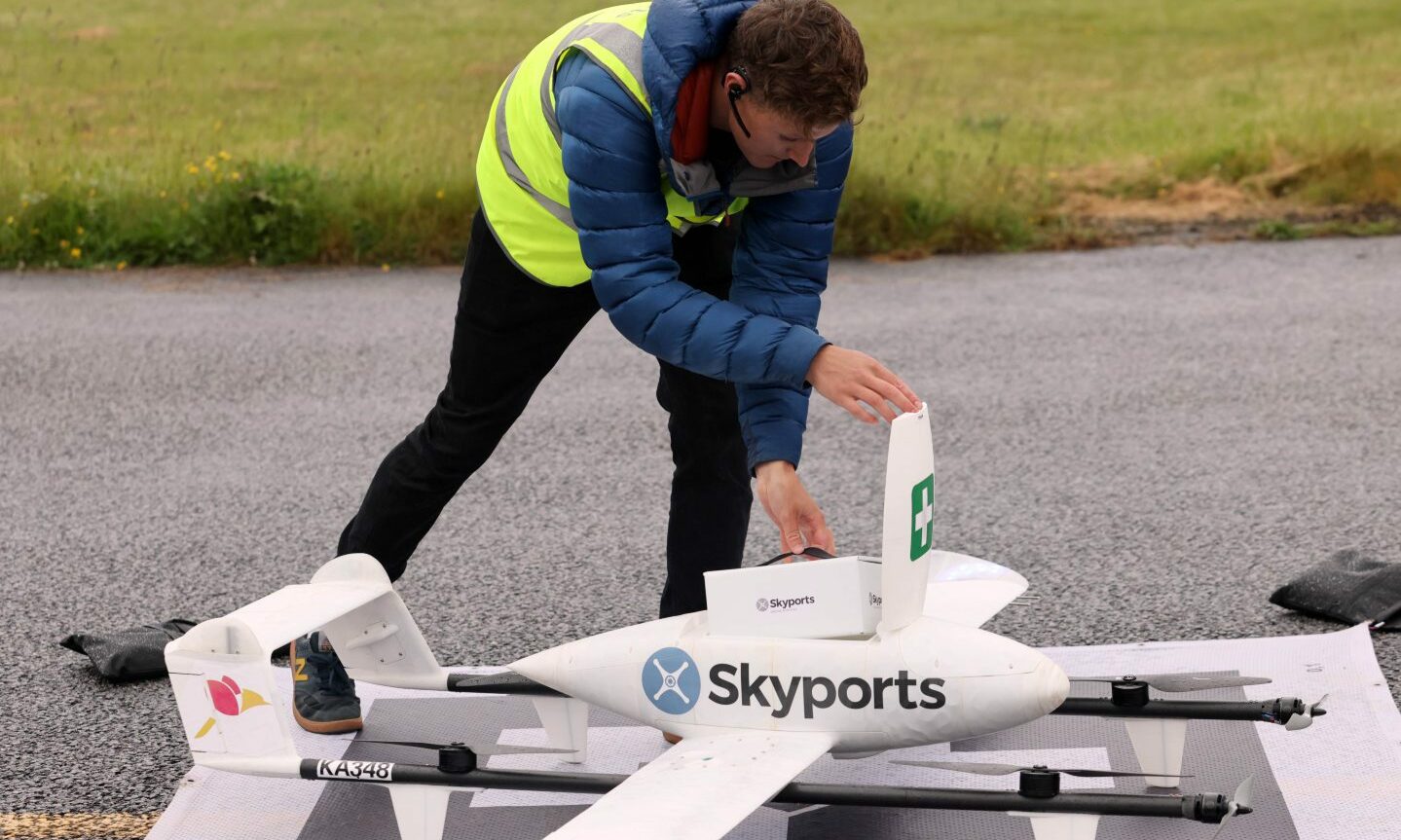Remote controlled drones will be used for school meal deliveries in a major trial which could be expanded to remote communities and islands.
Pupils at Lochnell Primary, near Oban, will be the first in the UK to receive food dropped off by the aerial devices.
Transporting supplies by van or ferry is expensive and can be unreliable when disruptive weather strikes.
The region has 23 inhabited islands.
Not all the area’s schools have kitchens to prepare meals on site.
Argyll and Bute council chiefs hope using drones will cut costs and increase efficiency while meeting the commitment for free meals to all P1-5 pupils.
The Royal Mail earlier revealed it will start using drones to deliver mail in the Western Isles, Orkney and Shetland.
The technology was also tested in the Highlands last year to drop off vital medical supplies, including Covid tests.
Argyll and Bute Council leader Robin Currie said his region is the “perfect location” for the test.
“We have already seen how drones can deliver essential media supplies to our islands and now we want to make sure all pupils have access to healthy school meals,” he said.
“This is just the start of what is possible using drones.”
How does it work?
The drones, built by London-based Skyports, will be launched from Oban Airport just under a mile from Lochnell Primary.
Video footage posted by the council shows the aerial vehicle being loaded with food before it takes off.
At the moment, the drones can only hold up to 3kg of supplies.
But engineers hope they will be able to scale-up after the trial.
Oban Airport could be used as a central drone-port for deliveries in the area by 2025 if the upcoming test runs are successful.
How is it funded?
The council received £170,000 of UK Government Community Renewal funding to pay for a planning application to bid for help through the Levelling Up Fund.
New funding will enable the construction of the drone base by March 2025.
UK Government Scotland minister Iain Stewart said the pilot scheme was “hugely welcome” and would have major benefits for the area.
“Pupils can’t learn and play on empty stomachs, so the ability to deliver nutritious school dinners to remote and island schools in a faster, more cost effective and reliable way is hugely welcome,” he said.


